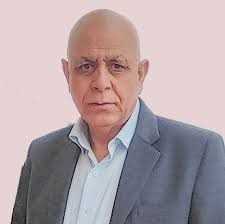
Inclusive education is more than a policy—it is a human right. It seeks to provide equal educational opportunities for all children, regardless of their physical, intellectual, social, emotional, linguistic, or other conditions. In the context of Nagaland, however, the implementation of inclusive education remains largely aspirational and faces several systemic challenges.
What is Inclusive Education?
Inclusive Education (IE) is a holistic educational approach where all students—including those with disabilities and learning challenges—are taught together in mainstream classrooms. The goal is to eliminate discrimination and create an environment where every child feels valued, supported, and has equal access to learning.
IE focuses particularly on children who are at risk of marginalization or exclusion, ensuring their participation in general educational settings through the use of appropriate curricula, teaching strategies, and support services.
Inclusive education is not just a matter of policy but of principle and practice. While Nagaland has acknowledged the need for inclusion, significant work remains in translating this vision into reality. Only through a collaborative effort involving the government, educators, families, and civil society can we hope to build an education system that leaves no child behind.
Dimapur Government College, one of Nagaland's most respected and long-serving institutions, is facing growing public pressure to introduce a Science stream. Despite decades of service in the arts and vocational education sectors, the absence of science programs remains a glaring omission, limiting opportunities for students aiming for careers in medicine, engineering, and scientific research.
Community members, educators, and students have consistently voiced their concern, urging the state government to take meaningful steps. While the college has recently expanded vocational training and general education offerings, stakeholders argue that these advancements are incomplete without the inclusion of a robust Science stream.
“This institution has helped shape the lives of thousands, but it’s time we take the next step. Our students deserve access to science education without having to leave Dimapur,” said a local education advocate.
The lack of science education at the college not only hampers individual student aspirations but also highlights a broader developmental gap in Nagaland’s higher education framework. A fully equipped science wing—with modern laboratories, qualified faculty, and dedicated infrastructure—would contribute significantly to academic advancement and workforce readiness in the region.
The consistent neglect by government authorities in addressing this demand is seen by many as a missed opportunity to align education policy with local needs. Community leaders are now calling for immediate government intervention, funding, and policy action to introduce and support the Science stream at Dimapur Government College.
Conclusion
Introducing a Science stream is no longer just a request—it is a necessary step toward equitable and comprehensive education in Nagaland. Addressing this demand would not only empower students but also uplift the overall academic stature of Dimapur Government College and contribute to the socio-economic development of the region.
Email:-----------farooqwani61@yahoo.co.in
Inclusive education is more than a policy—it is a human right. It seeks to provide equal educational opportunities for all children, regardless of their physical, intellectual, social, emotional, linguistic, or other conditions. In the context of Nagaland, however, the implementation of inclusive education remains largely aspirational and faces several systemic challenges.
What is Inclusive Education?
Inclusive Education (IE) is a holistic educational approach where all students—including those with disabilities and learning challenges—are taught together in mainstream classrooms. The goal is to eliminate discrimination and create an environment where every child feels valued, supported, and has equal access to learning.
IE focuses particularly on children who are at risk of marginalization or exclusion, ensuring their participation in general educational settings through the use of appropriate curricula, teaching strategies, and support services.
Inclusive education is not just a matter of policy but of principle and practice. While Nagaland has acknowledged the need for inclusion, significant work remains in translating this vision into reality. Only through a collaborative effort involving the government, educators, families, and civil society can we hope to build an education system that leaves no child behind.
Dimapur Government College, one of Nagaland's most respected and long-serving institutions, is facing growing public pressure to introduce a Science stream. Despite decades of service in the arts and vocational education sectors, the absence of science programs remains a glaring omission, limiting opportunities for students aiming for careers in medicine, engineering, and scientific research.
Community members, educators, and students have consistently voiced their concern, urging the state government to take meaningful steps. While the college has recently expanded vocational training and general education offerings, stakeholders argue that these advancements are incomplete without the inclusion of a robust Science stream.
“This institution has helped shape the lives of thousands, but it’s time we take the next step. Our students deserve access to science education without having to leave Dimapur,” said a local education advocate.
The lack of science education at the college not only hampers individual student aspirations but also highlights a broader developmental gap in Nagaland’s higher education framework. A fully equipped science wing—with modern laboratories, qualified faculty, and dedicated infrastructure—would contribute significantly to academic advancement and workforce readiness in the region.
The consistent neglect by government authorities in addressing this demand is seen by many as a missed opportunity to align education policy with local needs. Community leaders are now calling for immediate government intervention, funding, and policy action to introduce and support the Science stream at Dimapur Government College.
Conclusion
Introducing a Science stream is no longer just a request—it is a necessary step toward equitable and comprehensive education in Nagaland. Addressing this demand would not only empower students but also uplift the overall academic stature of Dimapur Government College and contribute to the socio-economic development of the region.
Email:-----------farooqwani61@yahoo.co.in
© Copyright 2023 brighterkashmir.com All Rights Reserved. Quantum Technologies